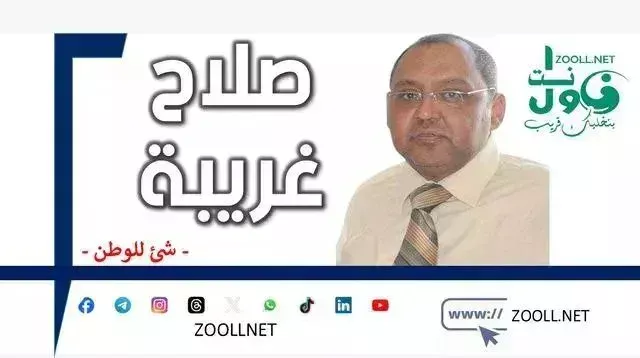Analysis of the legal advisor's logic for the rapid support campaign and its repercussions – Something for the homeland – Ing Salah Ghariba.

The statements of the legal advisor of the Rapid Support Militia, Mohamed Mukhtar, on the support of the Sudanese people for the Sudanese army, are considered a turning point in the media discourse of the two warring parties in Sudan. This speech, which devalues the broad popular support for the army, raises many questions about the logic adopted by this party, its degree of consistency with the reality on the ground and its repercussions on the future of Sudan.
Advisor Mohamed Mukhtar's description of supporters of the Sudanese army as “remnants of the old regime” is an oversimplification of Sudan's complex reality and constitutes a superficial and inaccurate analysis. The Sudanese people are diverse and diverse, and their support for the army is not only linked to a desire to return to the past, but rather reflects the aspirations of a people who seek stability and security, and see in the army the institution capable of provided that.
This statement reflects a desire to divide the Sudanese people between “us” and “them”, which deepens the state of polarization that Sudan has long suffered from. It also attempts to justify the actions carried out by the militias and present a distorted image of the Sudanese people, as if they do not have the right to freely express their opinion.
This speech can be interpreted from several angles, including an attempt to undermine the popular legitimacy of the army. By labeling army supporters as “remainers,” the militia seeks to undermine the popular legitimacy enjoyed by the army and present itself as such. representing the true aspirations of the people, however true they may be. This statement, in addition to trying to create a state of polarization, this speech attempts to contribute to creating a state of polarization and division within Sudanese society, in a context of This is clearly an illusion of wanting to make national reconciliation and the construction of a democratic state difficult, and by describing its opponents as “enemies of the people”, the militia attempts to justify the actions it undertakes and present a distorted image of itself . as a victim party, ignoring the ample evidence of its violations of human rights and international humanitarian law. This speech may be an attempt by the militia to control the fire it has started, by directing criticism towards its opponents and presenting itself as the victim.
Possible repercussions on the continuation of the conflict. This speech would lead to the continuation of the conflict and increase the intensity of tensions between the two sides, which threatens to drag the country into a long civil war, and would contribute to deepening social and political tensions. This speech calls for the international isolation of Sudan and undermines the international community's efforts to support the democratic transition process in the country.
Statements by the Rapid Support Militia's legal advisor reveal the depth of Sudan's crisis and confirm the need for a comprehensive national dialogue to address the roots of the crisis. All Sudanese parties must understand that the military solution is not the ideal solution, although it is necessary at the current stage, and that peaceful dialogue is the only way to achieve stability and peace in Sudan.
The remaining leaders of the Rapid Support Militia must come to the table for dialogue to achieve a political solution to the crisis, while ensuring fair representation of all Sudanese components. They must immediately cease hostilities, protect civilians and civilian infrastructure, and the international community must ensure this. humanitarian assistance to the Sudanese people who are suffering the effects of the war, and provide support for relief and rescue efforts, and all perpetrators of crimes committed during the conflict must be held accountable, regardless of their affiliation, in order to ensure that these crimes do not recur in the future, and the Sudanese parties must work to build trust between themselves and the Sudanese people, by taking concrete steps to address the causes of the crisis.
In conclusion, the statements of the legal advisor of the Rapid Support Militia raise many questions about the understanding that some have of the nature of the conflict in Sudan, and confirm the need for an urgent political solution to this crisis which threatens the future of Sudan.





